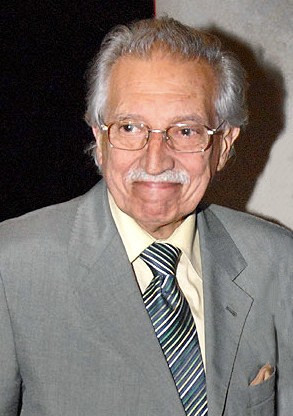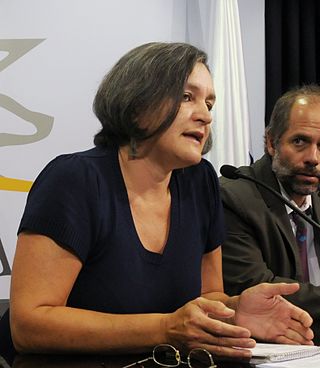
Land use planning is the process of regulating the use of land by a central authority. Usually, this is done to promote more desirable social and environmental outcomes as well as a more efficient use of resources. More specifically, the goals of modern land use planning often include environmental conservation, restraint of urban sprawl, minimization of transport costs, prevention of land use conflicts, and a reduction in exposure to pollutants. In the pursuit of these goals, planners assume that regulating the use of land will change the patterns of human behavior, and that these changes are beneficial. The first assumption, that regulating land use changes the patterns of human behavior is widely accepted. However, the second assumption - that these changes are beneficial - is contested, and depends on the location and regulations being discussed.
The New South Wales Department of Planning and Environment (DPE) is a department of the New South Wales Government, responsible for effective and sustainable planning to support the growth in the state of New South Wales, Australia. It makes plans based on evidence for the state's cities and regions, working with the community, business and local government to create places for people in NSW to live, work and spend their leisure time, while ensuring good access to transport and other services like shops and restaurants. The department is also responsible for the evidence-based assessment of state significant development applications.

Santana do Livramento is a city in the state of Rio Grande do Sul, Brazil. It is located along the border with the city of Rivera, Uruguay, forming together an international city of almost 170,000 inhabitants. Santana do Livramento was founded on July 30, 1823, and in 1857 was emancipated from Alegrete as a city. In 2009, the city was officially declared by the Brazilian government as the symbolic city of Brazilian integration with the Mercosur member states.
The Council of Ministers of the Republic of Colombia is composed of the most senior appointed politicians of the executive branch of the Government of Colombia. Members of the Cabinet are generally the heads of a Ministry Department. The existence of the Cabinet dates back to the first President Simon Bolivar. These members were appointed in order to advise the President and are therefore required to assist him in his duties as stated by the Colombian Constitution.
Uruguay is the only country in Latin America that has achieved quasi-universal coverage of access to safe drinking water supply and adequate sanitation. Water service quality is considered good, with practically all localities in Uruguay receiving disinfected water on a continuous basis. 70% of wastewater collected by the national utility was treated. Given these achievements, the government's priority is to improve the efficiency of services and to expand access to sewerage, where appropriate, in areas where on-site sanitation is used.

The Ministry of Housing, Spatial Planning and the Environment was a Dutch ministry. It was responsible for policies on public housing, spatial planning, the environment and the housing of national government agencies. It was merged with the Ministry of Transport, Public Works and Water Management into the new Ministry of Infrastructure and the Environment on 14 October 2010.

The following outline is provided as an overview of and topical guide to Uruguay:

The Ministry of Transport, Mobility and Urban Agenda (MITMA), traditionally known as the Ministry of Development (MFOM), is the department of the Government of Spain responsible for preparing and implementing the government policy on land, air and maritime transport infrastructure and the control, planning and regulation of the transport services on this areas. It is also responsible for guaranteeing access to housing; urban, soil and architecture policies; planning and controlling the postal and telegraph services, directing the services related to astronomy, geodesy, geophysics and mapping, and planning and programing the government investments on infrastructure and services related to this scope. The Ministry's headquarters are in the New Ministries government complex.
The Àrea Metropolitana de Barcelona is a public body operating on the principle of metropolitan authority. It is composed of representatives of Barcelona and 36 adjacent municipalities accounting for a population of 3,239,337 within an area of 636 km2. Its jurisdiction constitutes the main core of the unofficial Barcelona metropolitan area, with a population over 5 million.

The Ministry of Environment of the Republic of Lithuania oversees the environment and natural resources in Lithuania. Its mission is:

Mariano Arana was an Uruguayan architect and politician, Minister of Housing, Spatial Planning and Environment of Uruguay and mayor of Montevideo.
Carlos Alfredo Cat Vidal was a Uruguayan civil engineer and politician.
Francisco Santiago Beltrame Echeverría is a Uruguayan architect and politician.
The Uruguayan savanna ecoregion used to be covered by grasslands, palm savannas, and gallery forests along the Uruguay, Negro, Yaguarí, Queguay, and Tacuarembó rivers. Unfortunately, agriculture and cattle ranching have heavily altered these natural communities. The savannas are critically endangered because there are few small isolated patches of intact habitat remaining. The whole ecoregion has been severely altered by cattle ranching, one of the main pillars of the national economy in Uruguay. About 80% of Uruguayan territory is used for cattle ranching on natural and artificial savannas.

The Ministry of Housing and Territorial Planning is the Uruguayan government ministry which oversees the housing policies and territorial planning of Uruguay.

Graciela Muslera Méndez is a Uruguayan architect and politician.
Irene Renée Moreira Fernández is a Uruguayan lawyer, rural businesswoman and politician of Open Cabildo (CA) who served as Minister of Housing and Territorial Planning of Uruguay from March 1, 2020 to May 5, 2023.
The Ministry of Environment is the Uruguayan government ministry which oversees the environment of Uruguay.
Nelson Adrián Peña Robaina is a Uruguayan businessman and politician of the Colorado Party. He served as the first Minister of the Environment from August 27, 2020 to January 30, 2023.
A Housing minister is the member of a country's government typically responsible for Housing Policy.